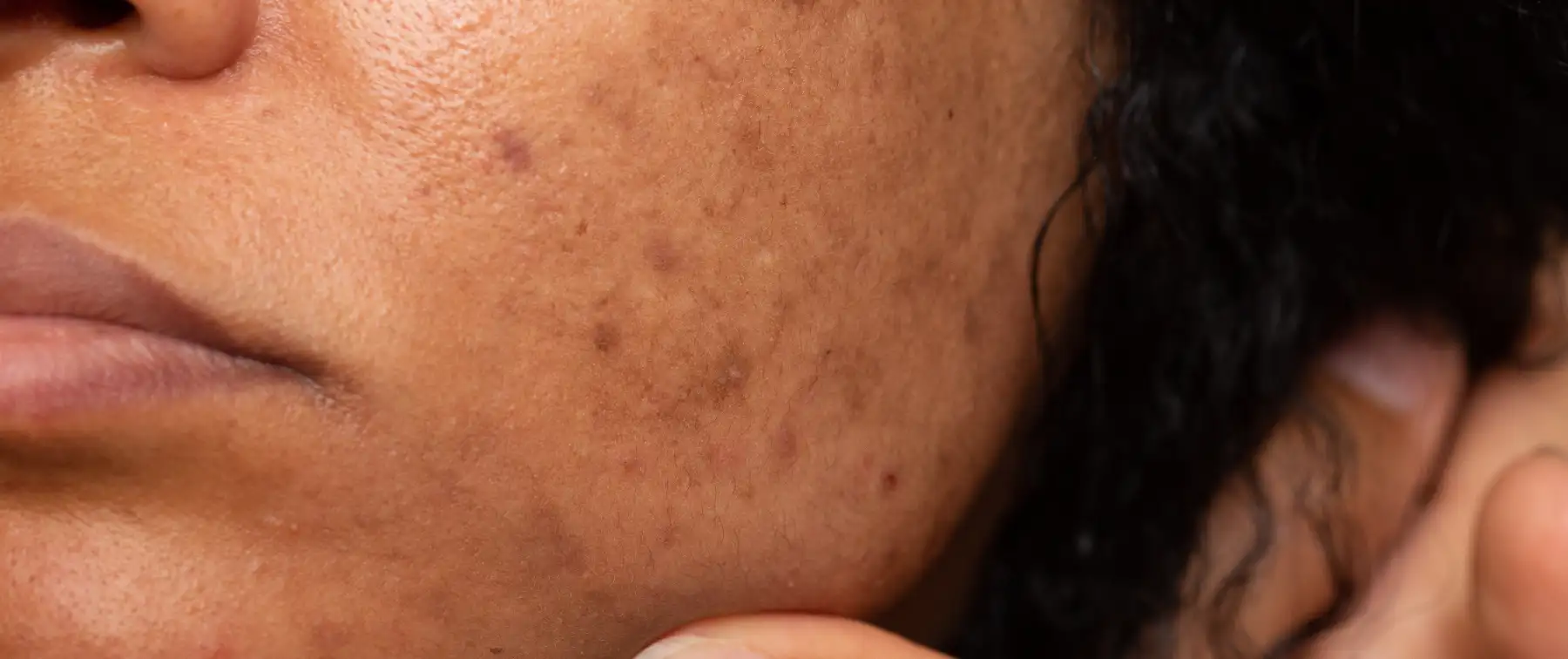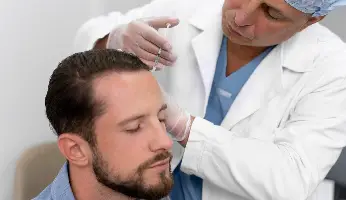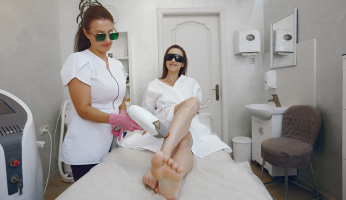
Dark pigmentation, medically termed hyperpigmentation, is a very common skin pigmentation irregularity that causes spots or patches of skin to become darker than natural skin tone. This dermatological concern can affect people of any skin type. This condition occurs when the skin cells have extra melanin deposits in particular areas of the face or body. Melanin is a coloured pigment produced by specialised skin cells called melanocytes and is responsible for giving one’s skin its natural colour or tone.
In this piece of information, the Pigmentation Treatment Doctor , Dr. Rajdeep Mysore, will share all about dark pigmentation, its types, and treatments. At his dermatology clinic, all types of advanced cosmetic dermatology procedures offered are effective in pigmentation removal and management.
What are the different forms of dark pigmentation and their symptoms?
Dark pigmentation or hyperpigmentation usually are of the following types:
- Age spots/ Liver spots/ Solar lentigines: These are brown, tan, or black spots on the skin that appear with frequent or overexposure to the sunlight. The dark-pigmented areas are the sun-exposed areas of the body, commonly the face and hands. Older adults whose skin has been exposed to the sun for an extended time usually are affected by this form of hyperpigmentation.
- Melasma: In melasma, large patches of darkened skin appear on the face or stomach of women, usually those who are pregnant or taking oral contraceptives, and having medium or darker skin.
- Post-inflammatory hyperpigmentation: This kind of dark pigmentation appears after an injury or an inflammatory skin condition such as eczema or acne that affects any area of the body.
What are the triggers of dark pigmentation?
The triggers of dark pigmentation include hormonal changes, sun exposure, and trauma to the skin due to a burn, injury, or acne breakout. Picking at spots and scabs may make dark pigmentation more prominent. Some cosmetics can irritate the skin and result in further darker pigmentation.
How can dermatologists help diagnose dark pigmentation?
To identify the type and cause of dark pigmentation, The best skin specialist in Bangalore at Charma Clinic will likely:
- Examine the skin, possibly with a Wood’s light source
- Review the patient’s medical history
- Ask the patient about the frequency of sun exposure and other lifestyle habits or events
- Perform a skin biopsy (to rule out the possibility of skin cancer)
- After knowing the cause and form of dark pigmentation, a dermatologist creates a personalised best-suited treatment plan for the patient.
What are the best treatments to correct dark pigmentation?
Although many topical creams can help reduce pigmentation, all kinds of dark pigmentation of varying severity may not be corrected with them. In such cases, dermatologists recommend some in-office cosmetic procedures. The best-proven pigmentation treatment in Bangalore that can help speed up fading out of dark pigmentation include:
- Microneedling: It is a popular, safe, and effective cosmetic procedure to remove dark pigmentation. It produces skin-lightening effects and is well-tolerated among most skin colours and types. The technique involves the use of a microneedling device that creates micro holes in the skin and subsequently initiates the shedding of the damaged skin cells and skin regeneration with an increase in collagen and elastin. This leads to a visibly lifted and brighter skin appearance.
Microneedling can be performed as a stand-alone treatment for pigmentation correction or in combination with radiofrequency or application of topical products that provide better results. It addresses the extra melanin in the skin by breaking up the cells and causing the superficial skin to regenerate.
To get rid of dark pigmentation, 3-6 microneedling sessions at intervals of 4-6 weeks are usually required. To maintain the results, the treatment must be repeated within 6 to 12 months.
- Lasers: Lasers have long been in use for aesthetic purposes including treatment of hyperpigmentation. There are many kinds of lasers available but the best for fading out dark pigmentation are argon and carbon dioxide lasers. The lasers provide short bursts of intense light of a specific wavelength on the pigmented area to treat various degrees of melanin deposition. The laser light generates heat that penetrates the skin to destroy the extra melanin in the skin and simultaneously boost collagen synthesis in the skin, thereby leaving the skin more youthful. Multiple treatment sessions are required to achieve the desired effects of lasers.
- Chemical peels: This treatment involves the application of acid solutions of specific strength on the dark spots or patches. The acid peels off the pigmented areas of the skin and reveals a new, clear skin from underneath. There are various kind of chemical peels available that acts on different levels of the skin. Based on their penetration ability, chemical peels are of three types: superficial peels (like lactic acid and glycolic acid), medium peels (like salicylic acid), and deep peels (like trichloroacetic and phenol). A dermatologist chooses chemical peels for correcting dark pigmentation depending upon the extent of pigmentation. Mild and medium peel treatment needs to be repeated every few weeks to provide desired results. Deep peels can help correct severe hyperpigmentation in a single session.
Is it possible to prevent dark pigmentation?
The appearance of dark-pigmented skin or its prominence cannot always be avoided. However, there are some ways to reduce the chances of having dark pigmentation. Some of the preventive measures include:
- Protect the skin from sunlight or UV by using broad-spectrum sunscreen of SPF 30 or above and wearing sun-protective clothing.
- Avoid picking, or scratching the skin following an injury or when there are scabs, spots, or acne
- Seek dermatologist advice on the use of cosmetic products as some might cause unwanted effects.
- Avoid the use of skin-lightening products to lighten the overall skin complexion.
Does dark pigmentation go on its own?
If there is a spot/patch on the skin that is a few shades darker than the natural skin tone, its fading usually occurs within 6 to 12 months. If the pigmentation is deep-seated in the skin, its fading can take years to come. To fasten the fading of dark pigmentation, a dermatologist-recommended treatment helps.
How can I naturally get rid of dark pigmentation?
Dark pigmentation in many cases may respond to natural home remedies. The natural remedies work by either replenishing and protecting the cells of the skin or replacing hyperpigmented cells with new, refreshing cells. Some natural remedies for dark pigmentation that you can try out include apple cider vinegar, milk or yoghurt, green tea, Vitamin C, red onion, aloe vera, licorice extract, and mulberry.
If you have any type of pigmentation, then get it managed with a pigmentation treatment doctor in Bangalore at Charma Clinic. They first diagnose the root cause of the concern and provide effective customised treatments for best results.
Visit now for more details!
Relatable: What is Hypopigmentation and How Phototherapy Helps In Its Management?




